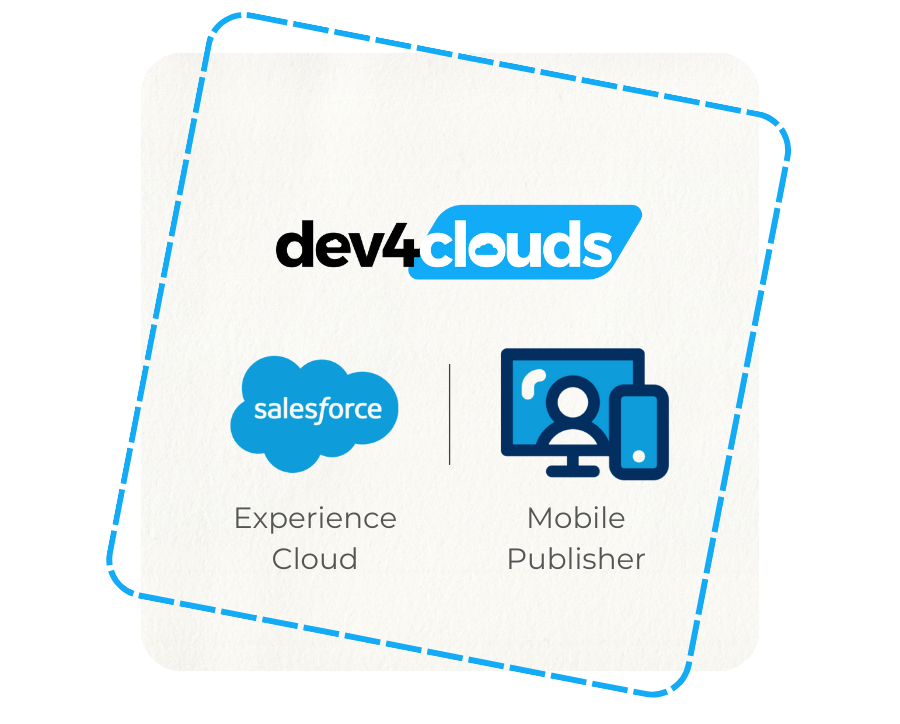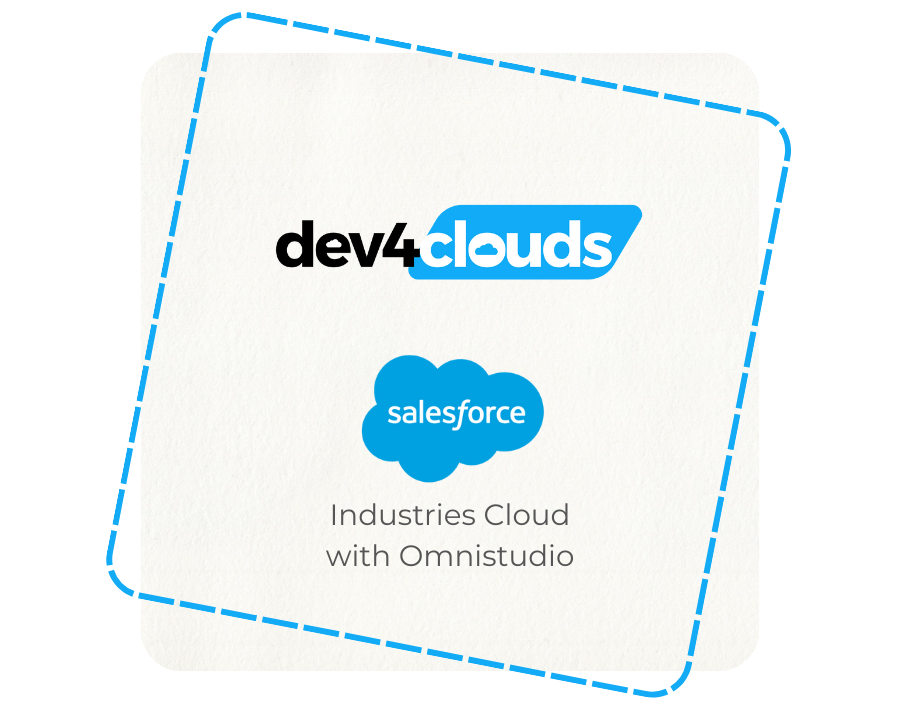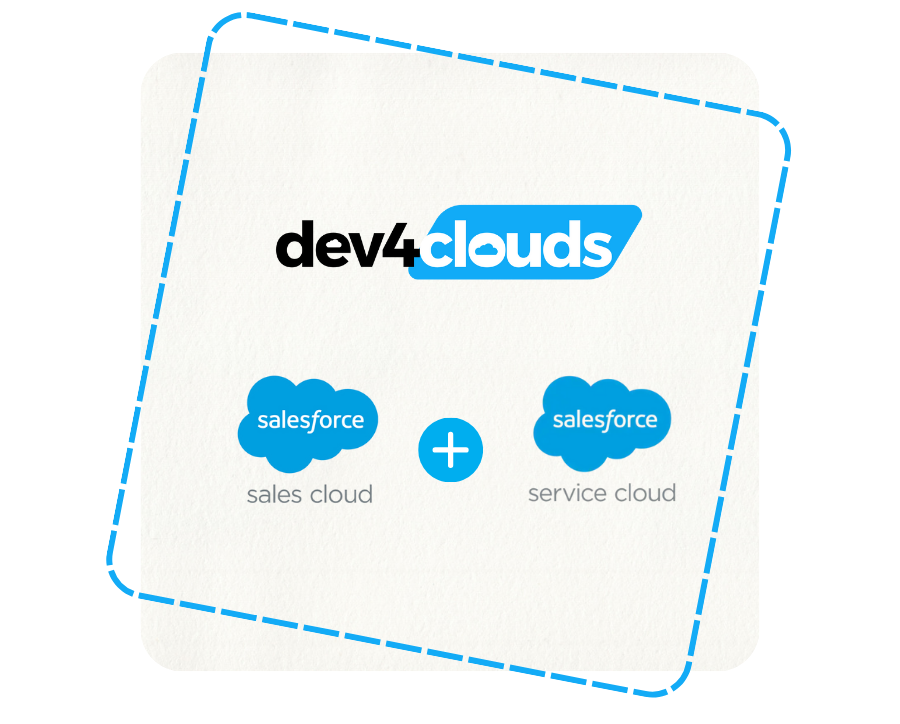When exploring a powerful CRM solution like Salesforce, it’s crucial to understand how its licensing costs work. At Dev4Clouds, we specialize in helping businesses like yours navigate the complexities of Salesforce, from choosing the right licenses to optimizing costs. Whether you’re in e-commerce, retail, or any other industry, knowing what to expect can help you make informed decisions that align with your goals.
What Affects Salesforce Licensing Costs?
Salesforce licensing costs vary depending on several factors, including the type of license, the number of users, and the specific Salesforce products or features you select. Let’s break these factors down to understand how they shape the overall cost.
Types of Salesforce Products
Salesforce offers a variety of products tailored to different business needs. Here’s a closer look:
- Salesforce Sales Cloud: Perfect for sales teams, this cloud provides tools for sales automation, contact management, and opportunity tracking. For example, a mid-sized retail company could use it to manage their sales pipeline and track customer interactions seamlessly.
- Salesforce Service Cloud: Designed for customer service teams, this product includes features like case management, a knowledge base, and omnichannel support. A tech startup might use it to efficiently handle support tickets across email, phone, and chat.
- Salesforce Marketing Cloud: This cloud empowers marketing professionals with tools for email campaigns, social media management, and customer journey tracking. An example would be a travel agency using it to create personalized campaigns for their audience.
- Salesforce Commerce Cloud: Built for e-commerce businesses, this platform helps manage online stores, from product listings to customer transactions. For instance, an online clothing retailer could use it to streamline inventory management and enhance the customer experience.
Each of these clouds comes with its own pricing model, tailored to the level of access and functionality your business requires.
Number of Users
Salesforce licenses are priced on a per-user basis, meaning the total cost will depend on how many people in your organization need access. A small business with a lean team of five employees will have different requirements than a large enterprise with hundreds of users. To optimize costs, identify who in your team truly needs a license and match them with the appropriate type.
Add-Ons and Advanced Features
Salesforce offers a variety of add-ons and advanced features that can enhance its functionality and tailor it to your business needs. These tools can significantly improve productivity, analytics, and customer engagement, but they also contribute to the overall cost. Here are some popular add-ons and what they can do:
- Einstein Analytics (Tableau CRM):
Offers advanced analytics powered by artificial intelligence. It helps businesses uncover trends, predict outcomes, and make data-driven decisions. For instance, a retail chain might use it to analyze sales performance across multiple locations. - Pardot (Account Engagement):
A comprehensive B2B marketing automation tool that streamlines lead generation and nurturing. Ideal for SaaS companies, it allows them to automate campaigns, track lead activity, and score prospects to focus on the hottest opportunities. - Salesforce CPQ (Configure, Price, Quote):
Enables sales teams to create accurate quotes for custom product configurations. A manufacturing company, for example, can use CPQ to streamline the quoting process for highly customizable machinery. - Field Service Lightning:
Helps companies manage their field service operations efficiently. This is especially useful for industries like utilities or home appliance repair, where scheduling, dispatching, and tracking field technicians is critical. - Experience Cloud (formerly Community Cloud):
Allows businesses to create branded portals and communities for customers, partners, or employees. For example, a real estate firm could build a customer portal for viewing properties and scheduling showings. - Shield Platform Encryption:
Offers advanced security features for organizations that handle sensitive data, such as healthcare providers managing patient records. - MuleSoft Anypoint Platform:
Provides integration capabilities for connecting Salesforce with other systems. A logistics company could use it to link Salesforce with their fleet management software for seamless data exchange. - Marketing Cloud Personalization (formerly Interaction Studio):
Enables real-time personalized customer experiences. An e-commerce store might use this to recommend products based on customer behavior. - Service Cloud Voice:
Integrates telephony into Service Cloud, giving service agents a unified platform for managing customer calls, chats, and cases. This is particularly valuable for call centers looking to enhance efficiency. - Quip:
A collaborative tool that integrates documents, spreadsheets, and chats directly into Salesforce. Teams can use it for project management and real-time collaboration, such as drafting proposals within the CRM. - Heroku:
A cloud platform for building, running, and scaling apps. A tech startup might use it to develop custom applications that integrate seamlessly with Salesforce data. - Slack for Salesforce:
Provides deep collaboration and communication tools integrated into Salesforce. Sales and service teams can use it to manage customer interactions and internal communications effectively. - Commerce Cloud Einstein:
Adds AI-powered personalization to e-commerce experiences, such as tailored product recommendations and predictive sorting for online stores. - Revenue Cloud:
Focused on revenue management, it streamlines subscription billing, recurring revenue models, and financial reporting. SaaS companies or any subscription-based business can leverage this for accurate billing and forecasting. - Health Cloud:
Designed specifically for healthcare providers, it offers tools for patient management, care coordination, and engagement. - OmniStudio:
A comprehensive suite of tools for building guided workflows, automating processes, and integrating data.- FlexCards provide dynamic, reusable UI components for displaying consolidated information.
- OmniScripts create step-by-step, guided workflows for tasks like claims processing or customer onboarding.
- DataRaptor and Integration Procedures enable seamless data management and real-time integration between Salesforce and external systems.
- Industry-specific functionality makes it ideal for telecommunications, insurance, healthcare, and more.
Each of these add-ons is tailored to specific business needs and industries, so it’s important to evaluate which ones align with your goals. While these features can enhance your Salesforce experience, they also increase licensing and implementation costs. A careful cost-benefit analysis is crucial to ensure you’re investing in the tools that bring the most value to your organization.
Salesforce Licenses: Choosing the Right Fit
Here’s a breakdown of common Salesforce license types:
- Standard User Licenses: The most commonly used licenses, priced per user per month. Costs vary depending on the edition (Essentials, Professional, Enterprise, Unlimited).
- Platform Licenses: These provide access to custom apps on the Salesforce platform but with limited standard CRM features. A nonprofit might use these to develop tailored apps for managing donors.
- Community Licenses: Designed for external users like customers or partners, these licenses allow access to specific Salesforce features. For example, a real estate agency might use them to let clients view and manage property listings.
- Advanced Licenses (Einstein, Pardot): These cater to businesses that need specialized tools for analytics or marketing automation.
Salesforce Editions: Finding the Right Match
Salesforce offers four main editions, each designed for specific needs:
- Essentials Edition:
Best for small teams or startups needing basic CRM features. For example, a local bakery could use it to manage customer contacts and streamline operations. - Professional Edition:
Ideal for growing businesses looking for more sophisticated tools like advanced dashboards and campaign management. A mid-sized IT firm might use this edition to scale their sales and marketing operations. - Enterprise Edition:
Tailored for larger organizations with complex processes. A logistics company with multiple teams could benefit from its workflow automation and integration capabilities. - Unlimited Edition:
Built for businesses with highly dynamic and complex requirements. This edition provides unlimited customization and premium support, perfect for global corporations needing robust scalability.
Real-World Scenario: Tailoring Licenses for a Growing Retailer
We recently worked with a growing online retailer with 20 employees. They needed a CRM solution to manage their sales pipeline and improve customer engagement. After analyzing their needs, we recommended a combination of Sales Cloud licenses for their sales team and Marketing Cloud add-ons for their marketing efforts. By tailoring the licenses to their specific requirements, we helped them reduce costs and achieve a better ROI.
Frequently Asked Questions
How much does a Salesforce license cost?
Pricing varies widely depending on the edition and features you choose. Standard user licenses can range from affordable options in the Essentials edition to premium rates for Unlimited.
Is Salesforce affordable for small businesses?
Yes, Salesforce is scalable, and options like the Essentials edition make it accessible for smaller businesses. It’s an investment, but one that pays off in terms of improved efficiency and customer management.
How many licenses will I need?
The number depends on your team size and their specific roles. Conducting a thorough assessment of your needs will help avoid overspending on unnecessary licenses.
At Dev4Clouds, we simplify Salesforce for businesses, helping you navigate licensing options, optimize costs, and unlock its full potential. Ready to get started?
Schedule your free consultation here and let’s discuss how we can help your business thrive with Salesforce.










